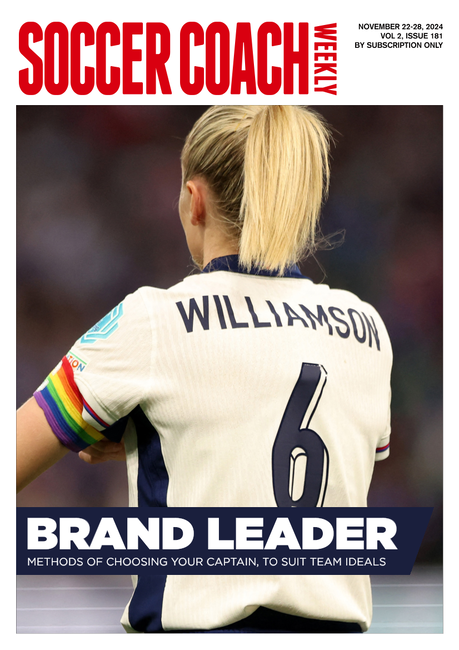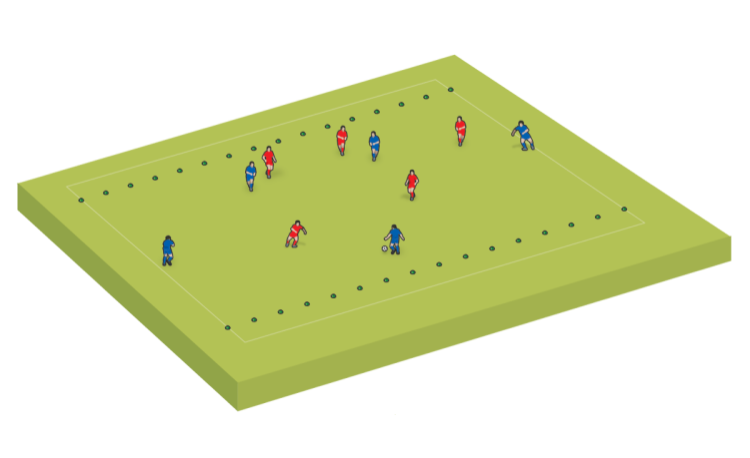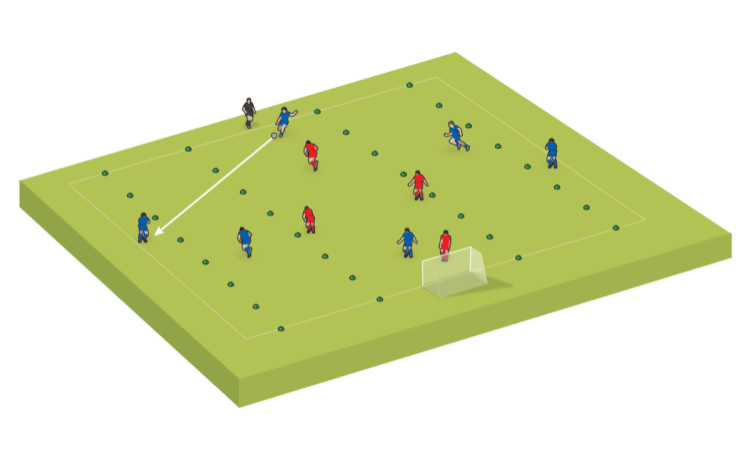Traits that can make you an expert coach
Coaching Adviceby Alex Trukan
Personality, knowledge and organisation go hand-in-hand, says Alex Trukan
There are many different coaching and leadership models that describe what it takes to be an ‘expert’ coach.
Many of these models are very context specific, describing what it takes to be an effective coach within certain environments, such as academy coach or first-team coach.
The model I have developed over the years is purely based on the areas I have tried developing in myself. I would like to think it can be applied at all levels of the game, whether you are working with under-6s or Premier League players.
I believe that, although context-specific knowledge and skills are important, a good coach is a good coach. This is something I have heard the best coaches say over and over again. The ingredients of an ‘expert’ coach are set within three areas: personality, knowledge of the game and organisation.
The base for every coach, no matter the level, is personality. What I have learned over the years is that there is no set personality that works in football.
Many of these models are very context specific, describing what it takes to be an effective coach within certain environments, such as academy coach or first-team coach.
The model I have developed over the years is purely based on the areas I have tried developing in myself. I would like to think it can be applied at all levels of the game, whether you are working with under-6s or Premier League players.
I believe that, although context-specific knowledge and skills are important, a good coach is a good coach. This is something I have heard the best coaches say over and over again. The ingredients of an ‘expert’ coach are set within three areas: personality, knowledge of the game and organisation.
The base for every coach, no matter the level, is personality. What I have learned over the years is that there is no set personality that works in football.

If players will get a sense of your personality and authenticity, they are more likely to buy in to your methods, says Alex Trukan
I have seen quiet coaches, I have seen very loud ones, I have seen those that had a very good sense of humour and also very serious ones. All of them were effective at their level.
One ingredient I believe that sets the best ones apart is authenticity - not trying to be someone else or mirror others' behaviours but being yourself and recognising the style and traits that set you apart.
Players can sense someone who is faking it. But that is not to give somebody an excuse to be lazy with behaviour and just saying and doing whatever he or she feels. Being authentic is recognising traits that are helpful and unhelpful in a given role.
Acknowledging and showing weaknesses is also a very powerful tool. Players will first and foremost see that you are human and like everybody else, make mistakes.
But there are also traits that can be harmful – these need working on. Knowing yourself is the key, something that is not very often talked about on coaching courses.
But even the most authentic coaches would not be effective if they did not know the subject they are trying to coach.
Knowing ‘the game’ is essential. That is understanding the game itself from tactical, technical, psychological, social and physical points of view. If you don’t know your stuff, it is very hard to teach it.
"One ingredient that sets the best coaches apart is authenticity.."
At every level, 'knowing the game' might look different. For an under-8s coach, it might be knowing what techniques are important within a 5v5 format, while for a first-team coach it might be knowing how to break down a particular team using your own players' strengths.
This appreciation comes with time but also with dedication to self-improvement as a coach – watching games, listening to more experienced coaches and players, delivering sessions and experimenting with them.
Finally, having a good personality and knowing the game would not be much use if a coach has no organisational skills.
Organisation of ‘how’ to teach the game, the ins and outs of when, where and how much players should train, will help to develop the know-how and help players learn.
This is from micro level (organisation of training sessions, time management, etc.) to macro level (organisation of training cycles within the season, choosing appropriate coaching methods, etc.). Delegating to others and organising a broader structure of a club also come under this category.
All three areas – personality, knowledge of the game and organisation - need to work together.
One area can’t function without the others and all three are needed to be an ‘expert’ coach.
Related Files
Vol 2 Issue 021 - Trukan - Traits that can make you an expert coach.pdfPDF, 401 KB
Newsletter Sign Up
Coaches Testimonials

Gerald Kearney, Downtown Las Vegas Soccer Club

Paul Butler, Florida, USA

Rick Shields, Springboro, USA

Tony Green, Pierrefonds Titans, Quebec, Canada
Subscribe Today
Discover the simple way to become a more effective, more successful soccer coach
In a recent survey 89% of subscribers said Soccer Coach Weekly makes them more confident, 91% said Soccer Coach Weekly makes them a more effective coach and 93% said Soccer Coach Weekly makes them more inspired.
*includes 3 coaching manuals
Get Weekly Inspiration
All the latest techniques and approaches
Soccer Coach Weekly offers proven and easy to use soccer drills, coaching sessions, practice plans, small-sided games, warm-ups, training tips and advice.
We've been at the cutting edge of soccer coaching since we launched in 2007, creating resources for the grassroots youth coach, following best practice from around the world and insights from the professional game.






